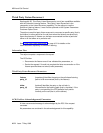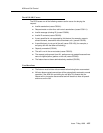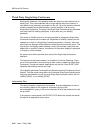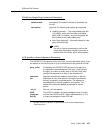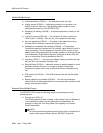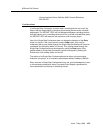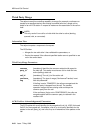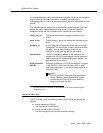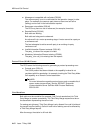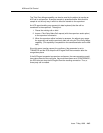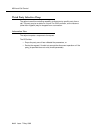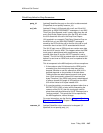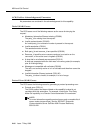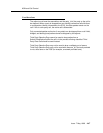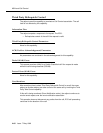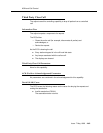
ASAI and Call Control
4-62 Issue 7 May 1998
■ Message not compatible with call state (CS0/98)
The common party is not in a valid state for the operation (merge) to take
place. For example, the common party does not have one call active
(talking) and one call in the held state as required.
■ Resources not available (CS3/40)
The ECS may have run out of resources (for example, time slots).
■ Reorder/Denial (CS3/42)
Both calls are Alerting.
Both calls are being service observed.
An active call is in a vector processing stage. A vector cannot be a party on
a conference call.
The host attempted to add a seventh party to an existing six-party
conference call.
■ Invalid Information Element contents (CS0/100)
The party_id value of the request is invalid.
■ Mandatory Information Element missing (CS0/96)
The party_id or call_id is missing from the request.
Protocol Error (NAK) Causes
The ECS issues the following cause for generating a protocol processing error:
■ Protocol error (CS0/111)
The Q.932 protocol has been violated or the capability invoked is not
consistent with this association, for example, invoking the Third Party Make
Call capability on a Domain Control association.
NOTE:
For more information regarding protocol errors and a complete list of
reason codes (cause values), see the
DEFINITY Enterprise
Communications Server CallVisor ASAI Protocol Reference
,
555-230-221.
Considerations
Both calls must be controlled (for example, Call Control associations) for Third
Party Merge to operate successfully. The Third Party Merge request must be on
the association representing the call on hold.
For analog sets (phones), Third Party Merge is only allowed if one call is held and
the second is active (talking). Calls on hard hold or alerting cannot be affected by
a Third Party Merge request.
After the merge, the station is off-hook idle.



